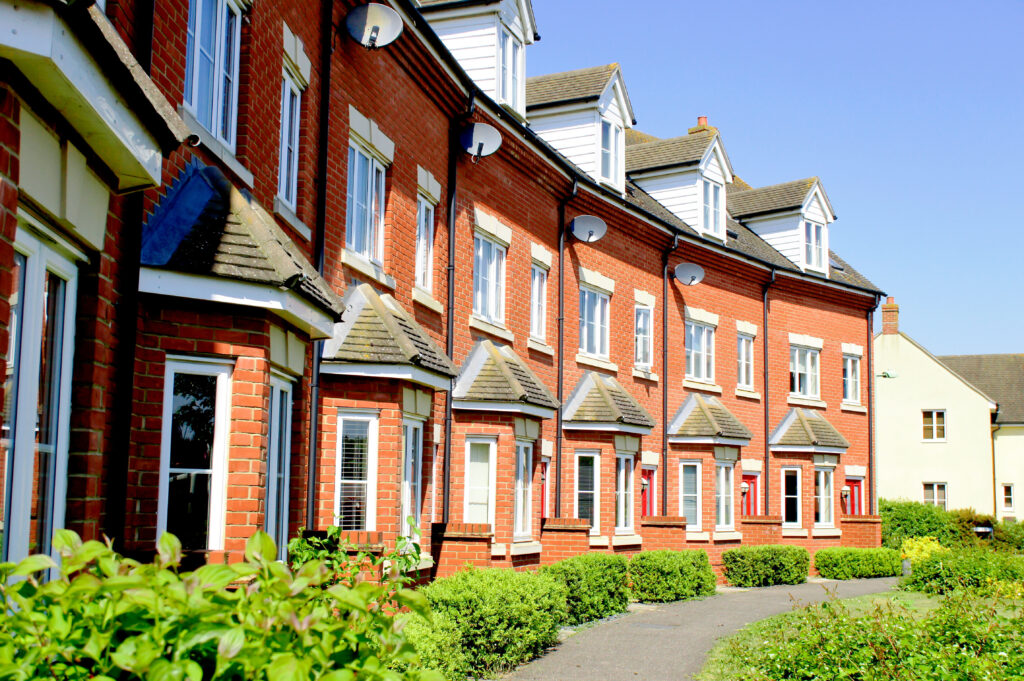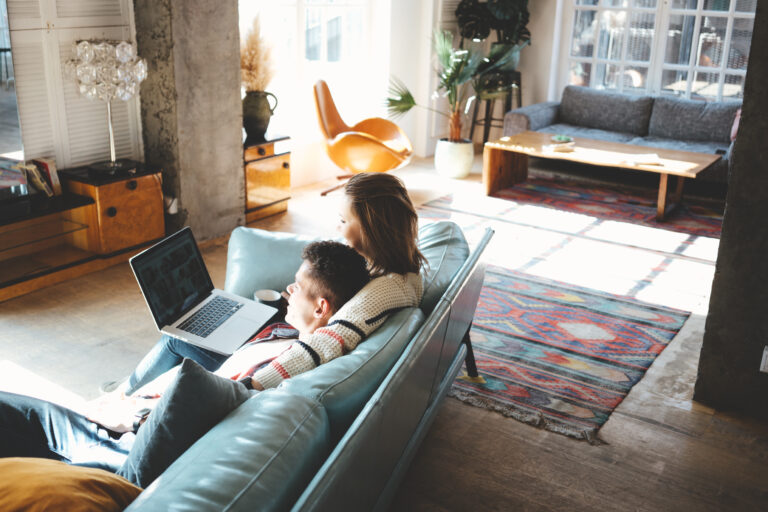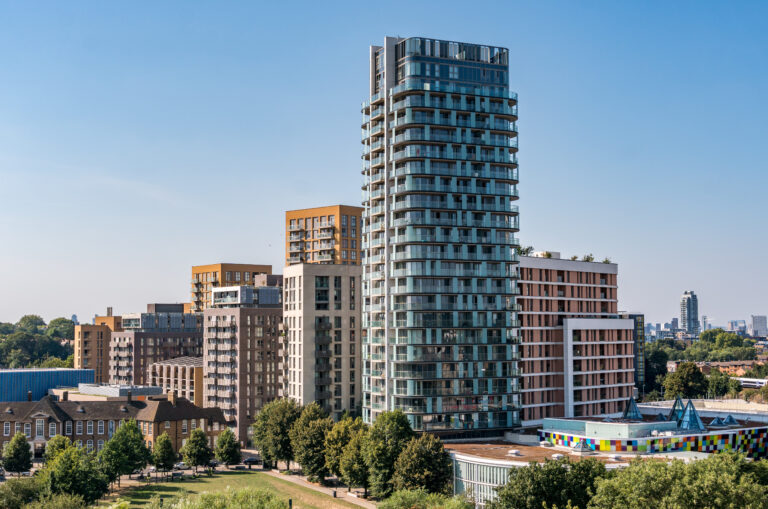It can be difficult to decide whether it’s best to rent or buy a home in the current housing market. With both house prices and rent going up, choosing between them is getting harder because costs are increasing whichever option you go for.
If you rent a property, you gain increased flexibility to move, but it’s often expensive and your rent is going towards paying off someone else’s mortgage rather than your own. However, buying a property has many upfront costs as well as monthly repayments, and these are currently on the rise.
If you’re not sure where to start, read our guide below to compare the pros and cons of both buying and renting a home.
Is it better to rent a property or buy a property?
When deciding whether to buy or rent a property start by looking at your personal circumstances and your financial position.
If you’re still studying, have a low income, or are considering moving jobs or location soon, renting might be best for you right now. Renting a home gives you a lot more freedom to move and there are less ongoing costs to cover, such as property repairs and maintenance. It’s also a simpler way to share costs if you live with a group of friends.
If you’re living with your partner and you’re both in paid work, you could combine your income to be able to get a larger mortgage. This opens up your options and you could afford to buy a larger property or a home in a more sought after area by going in together. However, you’ll need to save up some money first because there are a lot of upfront costs involved in buying a property, such as your deposit, for example.
With house prices increasing and interest rates doing the same, mortgages are going to get more expensive and monthly repayment costs are likely to go up. However, the rental market doesn’t buffer you from this completely either, because landlords are also having increased costs and are likely to put up their rent too.
When choosing whether to buy or rent your home, you should think about your financial situation and your lifestyle. Whichever you choose, you need to have a regular income to cover the costs, but there are many other pros and cons to consider for both options.
Renting vs buying
The advantages of renting a home
1) Flexibility
If you’re not staying in the same location for a long amount of time, then renting provides great flexibility. Whether you move around for work or for other reasons, it’s much easier, quicker and less expensive to move when you’re renting out a home.
2) Costs are consistent
You know how much your rent will be each month and this makes it easy to budget for. Your rent might increase when your lease comes up for renewal, but this will be negotiated beforehand. If your landlord includes utility costs in your rent (like water, gas and electric) then your monthly budget is even easier to plan for, as all of the unknowns are taken care of.
3) No maintenance costs
One of the biggest benefits to renting is that you won’t have any large, unexpected costs to cover when it comes to the upkeep of your property. If the boiler breaks or a pipe bursts, the repairs and associated costs are the responsibility of your landlord and you don’t have to pay a penny.
4) Better locations and bigger homes
When you rent, you can often afford to live in a bigger home that’s in a more highly-sought area than you could afford if you were buying a property. This is because there are many more costs associated with buying a property, which often makes it harder to access the best areas. Additionally, if you’re renting with a group of friends, you can often afford somewhere better than if you’re buying a property by yourself or with a partner.
The disadvantages of renting a home
1) You’re not building equity
By paying rent, you’re paying off your landlord’s mortgage rather than having your own and building up equity in a property. Equity is the amount of money that you have in your property; the amount of it’s value that you’ve already paid off.
2) Restrictions
Your landlord will have certain rules in place and these are outlined in your tenancy agreement. For example, some landlords don’t allow tenants to have pets living in the house, or they might limit how much decorating you can do. These restrictions can change the way you live your life and limit you in certain ways.
3) The landlord might sell
Your tenancy agreement gives you rights, however, once you reach the end of your tenancy agreement you don’t know what will happen. The landlord might renew it, but their situation might have changed and they could decide to sell the property. This would leave you without a home and you’d have to find somewhere new to rent pretty quickly.
4) Rent increases
Renting out a home doesn’t completely buffer you from changes to the economic climate. With costs on the rise, many landlords might be considering raising their rents, especially if your energy bills are covered by your rent payments too.
5) You don’t profit when the property market’s good
When property prices go up, homeowners gain more equity in their home. This means that they have more money in their home, which gives them more choices. They can release some of the equity for a quick cash release, hold onto it as a nest egg, downsize and release some funds, or sell and invest in a bigger property.
The advantages of buying a home
1) You make the decisions
When you own your own home you make all the decisions about how you decorate it and you can make modifications to it whenever you like. You can also own pets without having to get permission from a landlord. There’s a lot of freedom as well as security associated with owning your own home.
2) Paying off your mortgage
Although you have monthly mortgage repayments to make, you know that these are going towards paying off the loan on your own home, as well as the interest on the loan. You’re not lining anyone else’s pockets; you’re investing in your own future.
3) You profit when the housing market’s good
When house prices are on the up, your property increases in value without you having to do anything at all. This means that your property makes you money because you have more equity in it. Equity can provide a great nest egg for your future, as well as a good back up if you need emergency funds.
4) Home improvements
Any money you spend on improving your home should increase the price of your property, so it tends to be a worthwhile investment.
5) Only move when you want to
You’re in complete control of whether you put your house up for sale or not, whereas if you’re renting a home the landlord could choose to sell at any time.
The disadvantages of buying a home
1) It’s a big investment
When you buy your own home you’ll need to have enough money saved up to cover all the upfront costs such as a deposit and stamp duty.
2) Interest rates
If interest rates rise sharply, this could increase your monthly repayments, especially if you’re on a tracker mortgage or you’re at the end of a fixed rate deal. Interest rates are outside of your control and big changes to these could severely affect your monthly budget.
3) Housing market effects
If the housing market is struggling, the value of your home might drop. This could result in you having a larger mortgage than your property’s worth, and it could make it very hard to sell.
4) Times of low income
If you lose your job or have times when you’re struggling to bring in enough money, you could get behind on mortgage payments. If you’re unable to clear your arrears, this could lead to defaulting on your mortgage and your home being repossessed.
5) Maintenance costs
As a home owner, you’re responsible for all the maintenance and repair costs associated with the property. These can be quite expensive as well as hard to plan for because things can break at any time without warning.
6) Moving takes time
There’s no quick or immediate way to move house as a homeowner because selling property takes time, especially if you can’t afford to lower the price of your house.
7) Relationship complications
If you have a joint mortgage with your partner and you decide to separate, owning a home together becomes very complicated. If you decide to sell, this takes time and you need to split the proceedings whilst both finding somewhere new to live. If you keep the property and one of you moves out, affording the repayments and sharing any equity held in the property might also be difficult.
Things to consider when deciding whether to rent or buy
1. Can you afford a deposit?
There are large upfront costs when you buy a property, and your deposit is one of the biggest ones. Whilst there are 100% mortgages out there, they have certain conditions, like a guarantor mortgage for example. (A guarantor mortgage is when you have a friend or family member who agrees to make your monthly repayments if you can’t afford to.)
Generally speaking, you’ll need a 5% deposit as a minimum. For example, if you buy a house that’s worth £250k, a 5% cash deposit is £12,500. The higher the deposit you can raise, the better mortgage deal you can get, which means that you end up paying less overall.
Stamp duty is another large cost and there’s also estate agent fees, solicitor fees, valuation costs and removal van costs.
2. When will you want to move?
If you’re only planning to stay in one location for a short amount of time, then you might be better to rent a property rather than buy one. There’s a lot of costs associated with selling and buying, and the timeline is a lot longer too.
3. Could you buy with someone else?
If you’re moving in with a partner or a group of friends, you could put your incomes together to afford a larger property in a better area than if you were to buy alone.
4. What can I afford?
When weighing up your options, you should look at your monthly budget. If you buy a home, not only do you need to afford your monthly mortgage payments, but you also need to save up some contingency for maintenance costs and repairs to your property. Additionally, if interest rates rise and you’re on a tracker mortgage or you reach the end of your fixed-rate deal, this could affect your monthly payments. You need to consider whether you could afford future price increases or not.
Choosing whether to rent or buy a home is a big decision and there are many factors to consider. Your personal situation and financial position are big factors, but there’s also the wider economic climate to consider too. If you’re not sure where to start, then talk to one of our trusted agents about your options. If you have a property that you’re thinking about selling, then find out how much it’s worth by booking in a free property valuation with us today.




